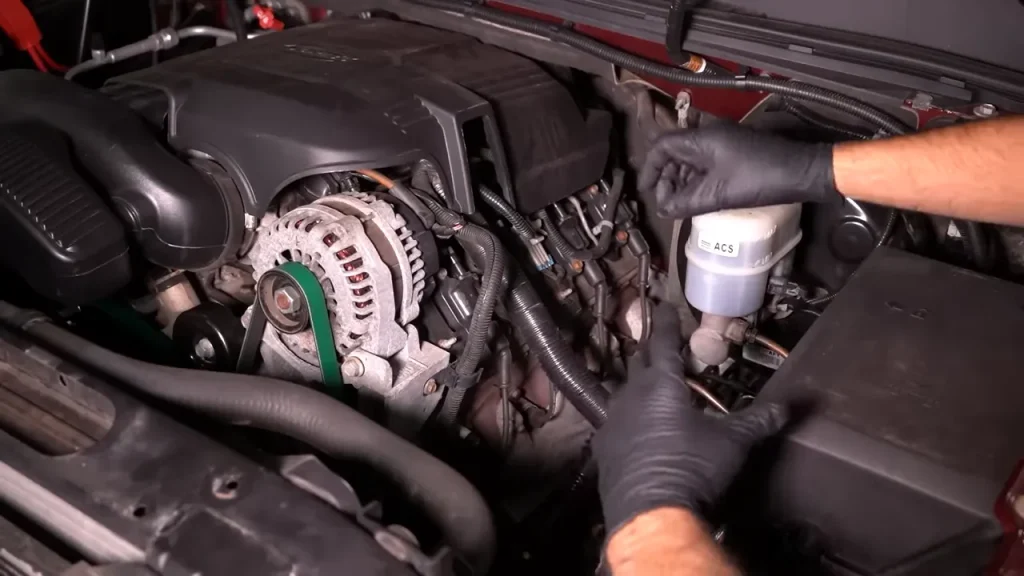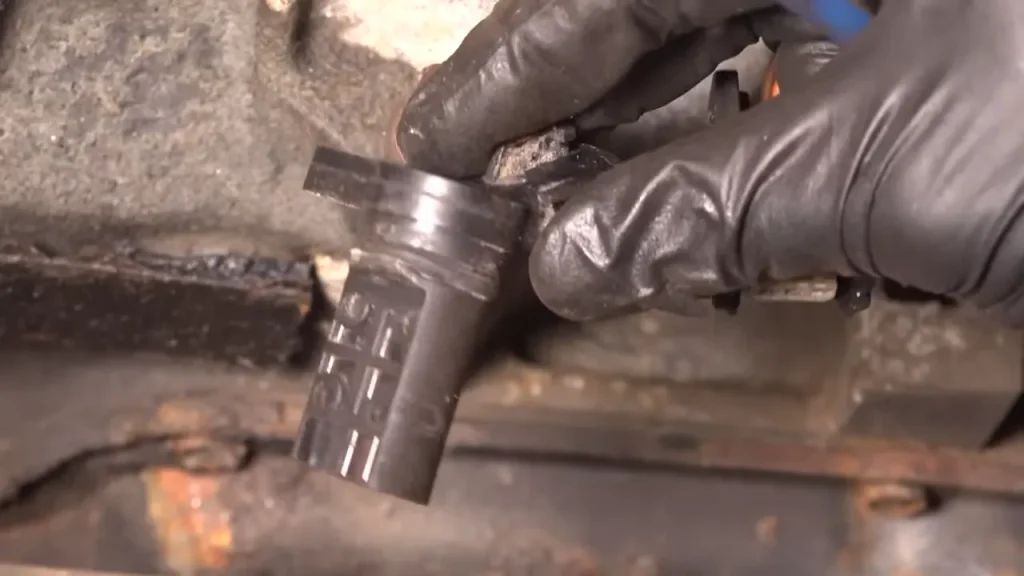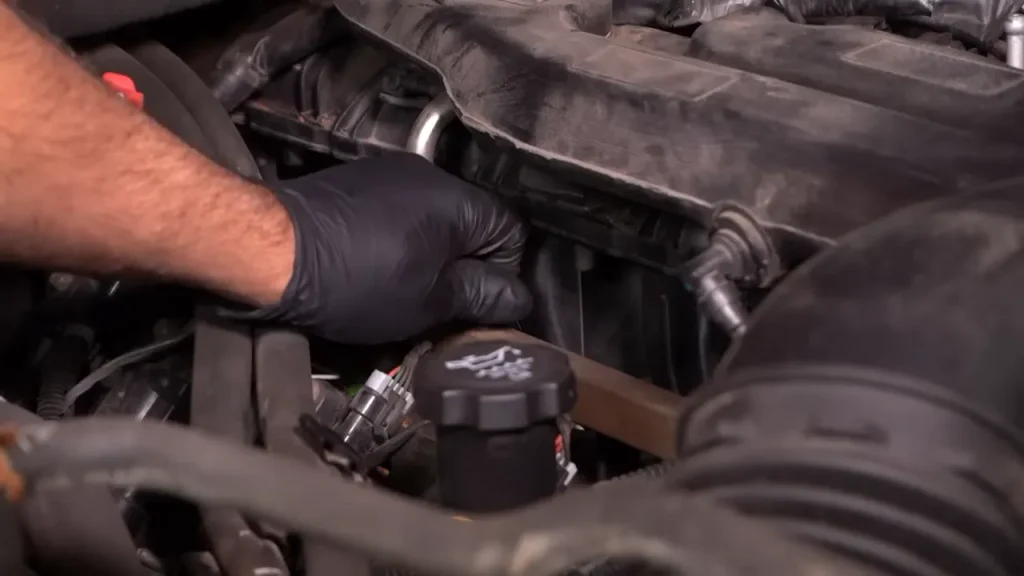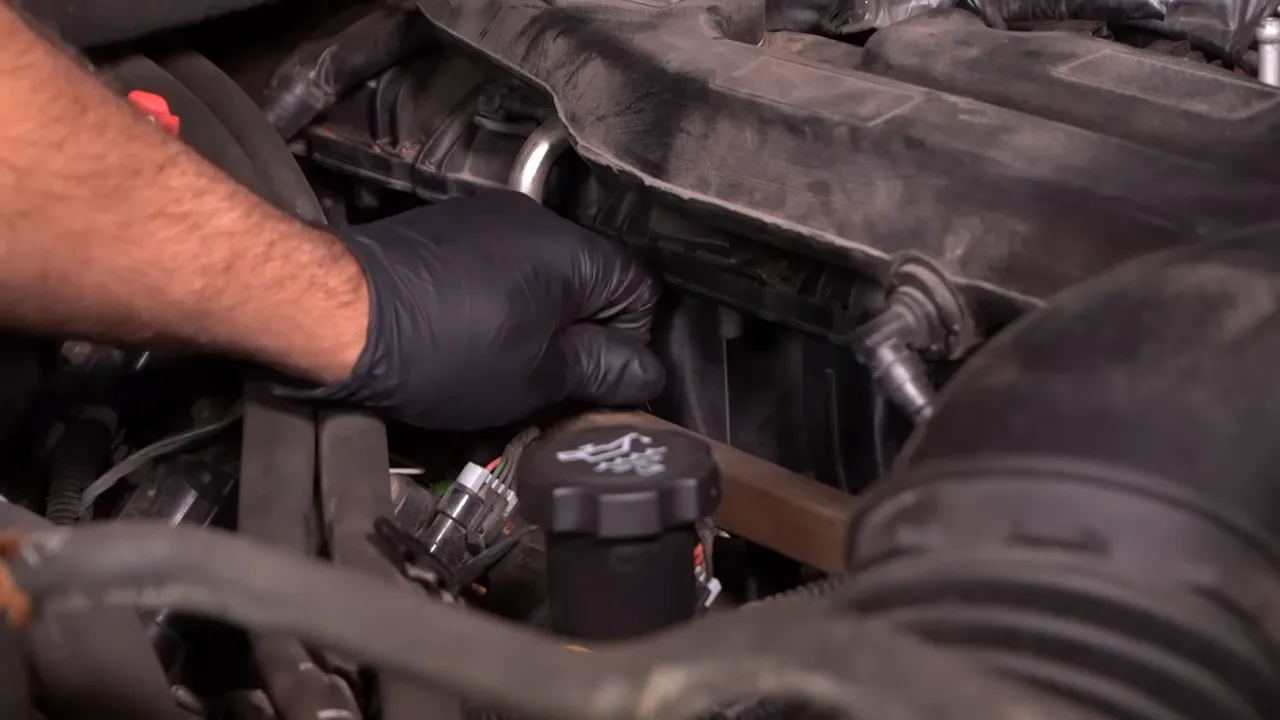My Car Starts Sometimes And Sometimes It Doesn’t (Explained)
Sometimes, your car starts inconsistently, and this issue needs attention. We will explore the possible reasons behind the intermittent starting problem of your vehicle and provide potential solutions to resolve it.
Read on to learn more about what could be causing this frustrating issue and how you can fix it.
Common Causes Of Intermittent Starting Issues
Are you frustrated with your car’s unpredictable starting behavior? One moment, it starts flawlessly, and the next, it refuses to give any sign of life. Intermittent starting issues can be a real headache for car owners, but fret not! In this section, we’ll explore the common causes behind these problems so that you can have a better understanding of what might be plaguing your vehicle.
Faulty Ignition Switch
The ignition switch plays a crucial role in starting your car, as it provides the electrical connection between the battery and the starter motor. When this component becomes faulty, it can result in intermittent starting problems. Here are the key points to consider:
- Worn out contacts: Over time, the contacts inside the ignition switch can wear out, leading to inconsistent electrical connections.
- Loose wiring: Loose or damaged wiring around the ignition switch can cause intermittent disruptions in the flow of electricity, preventing the car from starting reliably.
- Ignition switch recall: In some cases, manufacturers may issue recalls for faulty ignition switches, so it’s worth checking if your vehicle is affected.
Weak Battery
A weak battery is another common culprit behind intermittent starting issues. Here’s what you need to know:
- Insufficient charge: If your battery doesn’t have enough charge, it may struggle to provide the necessary power to start the engine consistently.
- Aging battery: As a battery ages, its capacity to hold a charge diminishes, which can result in sporadic starting problems.
- Corroded terminals: Corrosion on the battery terminals can impede the flow of electricity, causing starting issues. Regular cleaning and maintenance can help prevent this.
Fuel Delivery Problems
Problems with fuel delivery can also contribute to your car’s intermittent starting woes. Consider the following:
- Clogged fuel filter: A clogged fuel filter can restrict the flow of fuel to the engine, leading to difficulty in starting the car. Regular filter replacements are necessary to avoid this issue.
- Faulty fuel pump: A faulty fuel pump may not provide sufficient fuel pressure, making it harder for the engine to start consistently.
- Contaminated fuel: Contaminants in the fuel, such as dirt or water, can obstruct the proper functioning of the fuel system, resulting in intermittent starting problems.
By understanding the common causes behind intermittent starting issues like a faulty ignition switch, weak battery, and fuel delivery problems, you can now make an informed decision on how to tackle these frustrating situations. Whether it requires an ignition switch repair, battery replacement, or fuel system maintenance, addressing these issues promptly will ensure a more reliable and stress-free starting experience for your car.
So, don’t let unpredictable starts dampen your driving adventures; take action and get back on the road with confidence.
How To Troubleshoot Intermittent Starting Issues
Having a car with intermittent starting issues can be frustrating and inconvenient. One moment it starts with no issues, and the next moment it refuses to start. If you’re experiencing this problem, don’t worry. In this section, we will discuss some troubleshooting steps to help you diagnose and resolve the issue.
Checking The Ignition Switch
The ignition switch plays a crucial role in starting your car. If it’s faulty or malfunctioning, it can cause intermittent starting problems. Here are the key points to consider:
- Inspect the ignition switch for any visible damage or signs of wear and tear.
- Make sure the switch is properly connected and securely in place.
- Check if the ignition switch is turning smoothly without any stiffness or resistance.
- If you suspect a faulty ignition switch, consider getting it tested or replaced by a professional.
Testing The Battery And Charging System
A weak or malfunctioning battery can also result in intermittent starting issues. To ensure your battery is in good condition, follow these steps:
- Test the battery voltage using a voltmeter. A healthy battery should read around 12.6 volts or higher.
- Check the battery terminals for corrosion or loose connections. Clean and tighten them if necessary.
- Inspect the battery cables for any signs of damage or fraying.
- If the battery voltage is low or the connections are faulty, it may be time to replace the battery or have the charging system checked by a mechanic.
Inspecting The Fuel System
The fuel system is another component that can contribute to intermittent starting problems. Consider the following points:
- Check the fuel level to ensure there is enough gasoline in the tank.
- Inspect the fuel pump for any signs of failure or malfunction. A faulty fuel pump can prevent your car from starting.
- Examine the fuel filter for clogs or blockages. A dirty or clogged fuel filter can restrict the flow of fuel and impact starting.
- If you suspect issues with the fuel system, consult a professional mechanic for proper diagnosis and repair.
Remember, troubleshooting intermittent starting issues can be challenging, especially if you’re not familiar with automotive systems. When in doubt, it’s always best to seek the assistance of a qualified mechanic who can accurately diagnose and resolve the problem.
By following the above steps and getting professional help if needed, you can get to the root of the issue and enjoy a car that starts reliably every time.

Fixing Intermittent Starting Issues
Is your car giving you a hard time starting up? One day it’s ready to hit the road, and the next, it refuses to come to life. Dealing with intermittent starting issues can be frustrating and inconvenient, but fear not! We’ve got you covered with some potential solutions to get your car back on track.
Replacing The Ignition Switch
If your car only starts sporadically, it might be due to a faulty ignition switch. This vital component controls the electrical system and allows the engine to crank. Here’s what you need to know:
- Symptoms of a faulty ignition switch include difficulty turning the key, intermittent starting problems, and even stalling while in motion.
- Consider replacing the ignition switch if you’ve ruled out other potential causes, such as a weak battery or fuel issues.
- Consult your car’s manual or seek professional help for the exact ignition switch replacement process.
- Once the new ignition switch is installed, test it to ensure your starting problem has been resolved.
Upgrading To A New Battery
A weak or aging battery can contribute to intermittent starting issues. If your battery is more than three years old or frequently requires jump-starting, it may be time for an upgrade. Here’s what you should consider:
- Investing in a new battery can provide a reliable power source and ensure smooth engine starts.
- Choose a battery with the correct specifications for your vehicle, including size, cold cranking amps (cca), and reserve capacity (rc).
- Follow the manufacturer’s instructions for proper installation, including disconnecting the old battery, cleaning the terminals, and securely attaching the new battery.
- Regularly maintain your new battery by keeping it clean, ensuring all connections are secure, and performing regular checks for signs of deterioration.
Repairing Or Replacing Fuel Components
Sometimes, intermittent starting issues can stem from fuel system complications. Failing components might prevent the engine from receiving the necessary fuel for ignition. Consider the following:
- Check for clogged fuel filters, which can restrict the flow of fuel to the engine. Replace them if necessary.
- Inspect the fuel injectors for dirt or blockages. Cleaning or replacing them can improve fuel delivery and starting performance.
- Verify the condition of the fuel pump, as a faulty pump can hinder adequate fuel supply. If needed, consult an expert for professional diagnosis and repairs.
- Remember to regularly maintain your fuel system according to your vehicle’s recommended schedule.
By addressing these potential culprits – the ignition switch, battery, and fuel components – you can increase the likelihood of your car starting consistently. However, consult with a qualified mechanic if your intermittent starting issues persist, as they can provide accurate diagnosis and appropriate solutions for your specific vehicle.

Additional Tips For Troubleshooting Car Start Problems
Is your car giving you a hard time starting up? Don’t worry, we’ve got you covered! Here are some additional tips to help you troubleshoot those frustrating car start problems.
Checking The Starter Motor
The starter motor plays a crucial role in getting your car’s engine running smoothly. Here’s what you should investigate:
- Inspect for any loose or worn-out electrical connections.
- Look out for any signs of damage or corrosion on the starter motor itself.
- Ensure that the starter motor is securely mounted and aligned with the flywheel.
- Test the voltage of the battery to rule out any power supply issues.
- Consider the age and condition of the starter motor – it may be time for a replacement if it’s been giving you trouble for a while.
Inspecting The Wiring And Connections
Faulty wiring or loose connections can cause intermittent starting issues. Take these steps to ensure everything is in order:
- Check all the wiring connections leading to the starter motor and ignition switch.
- Look for frayed or damaged wires and replace them if needed.
- Tighten any loose connections and ensure they are securely fastened.
- Test the ignition switch for any signs of malfunction.
Considering Environmental Factors
Sometimes, external elements can impact your car’s starting abilities. Keep these factors in mind:
- Extreme temperatures, especially in colder months, can affect the performance of your car’s battery. Consider investing in a battery heater or insulating cover to combat cold weather issues.
- Excessive moisture or humidity can cause electrical problems. Inspect the spark plugs and ignition system for signs of moisture accumulation and address them promptly.
- If you frequently drive in dusty or muddy conditions, check for any clogged air filters. A dirty air filter can hinder the car’s starting process.
Remember, if you’re uncertain about any troubleshooting steps or suspect a serious issue, it’s always wise to consult a professional mechanic. They have the expertise and knowledge to diagnose and fix complex car start problems.
So there you have it – some additional tips to help you get to the bottom of your car’s mysterious starting issues. By following these pointers and staying vigilant for warning signs, you’ll be well on your way to resolving those frustrating moments when your car starts sometimes and sometimes it doesn’t.

Preventive Measures To Avoid Intermittent Starting Issues
My Car Starts Sometimes And Sometimes It Doesn’T
Have you ever experienced the frustration of trying to start your car, only to find that it doesn’t start? It can be a real inconvenience, especially when you have important places to be. Intermittent starting issues can be caused by a variety of factors, but the good news is that there are preventive measures you can take to avoid these frustrating situations.
In this section, we’ll discuss some key steps you can take to maintain your car’s starting system and keep it running smoothly.
Regular Battery Maintenance
One of the leading causes of intermittent starting issues is a weak or dead battery. To prevent such problems, it’s essential to perform regular battery maintenance. Here are some important points to keep in mind:
- Check the battery terminals for corrosion and clean them if needed. Corrosion can hinder the flow of electricity and impact the battery’s performance.
- Inspect the battery cables for any signs of fraying or damage. Damaged cables can prevent the battery from properly delivering power to the rest of the vehicle.
- Ensure that the battery is securely mounted in its tray. A loose battery can cause electrical connections to become loose or disconnected, resulting in starting problems.
- Test the battery’s voltage regularly. A fully charged battery should read around 12.6 volts. If the voltage drops significantly, it may be time to replace the battery.
Keeping The Ignition System Clean
A clean and well-maintained ignition system is crucial for reliable starting. Here are some steps you can take to ensure your ignition system is in top shape:
- Regularly inspect the ignition components, such as spark plugs, spark plug wires, and the distributor cap (if applicable). Replace any worn or damaged parts promptly.
- Clean the spark plugs if they are dirty or covered in carbon deposits. This can improve ignition efficiency and promote better starting.
- Keep the area around the ignition system clean and free from debris. Dust or moisture can interfere with proper ignition and lead to starting issues.
Using Fuel Additives
Using fuel additives can also help prevent intermittent starting problems. Consider the following points:
- Use a fuel additive designed to clean fuel injectors and remove deposits from the fuel system. This can help improve fuel delivery and combustion, leading to better starting performance.
- Fuel additives with moisture-wicking properties can help combat the effects of water accumulation in the fuel tank. Water in the fuel can lead to starting issues, especially in cold weather.
By following these preventive measures, you can significantly reduce the chances of experiencing intermittent starting issues with your car. Regular battery maintenance, keeping the ignition system clean, and using fuel additives are simple yet effective ways to ensure that your car starts reliably every time you turn the key.
Remember, proactive maintenance is key to avoiding inconvenient breakdowns and keeping your vehicle running smoothly.
When To Seek Professional Help
Complex Electrical Issues
- Modern cars are equipped with complex electrical systems that control various components, including the ignition and starting system.
- If your car starts inconsistently or fails to start at all, it could be due to complex electrical issues that require professional assistance.
- Here are some signs that indicate you should seek professional help for complex electrical issues:
- Intermittent starting problems, where the car starts sometimes and sometimes it doesn’t.
- Faulty ignition switch or starter motor.
- Malfunctioning wiring or connectors.
- Issues with the engine control module (ecm) or electronic components.
- Problems with the battery, alternator, or other electrical components.
- Seeking professional help for complex electrical issues ensures that the problem is accurately diagnosed and expertly repaired to prevent any further damage to your vehicle’s electrical system.
Advanced Fuel System Problems
- Another common cause of starting troubles is advanced fuel system problems. A malfunctioning fuel system can affect the delivery of fuel to the engine, leading to starting difficulties.
- Here are a few signs indicating the need to consult a professional for advanced fuel system problems:
- Hard starting or frequent stalling.
- Engine misfires or rough idling.
- Fuel odor or leaks.
- Reduced fuel efficiency.
- A professional mechanic can diagnose and address advanced fuel system issues, which may involve addressing problems with the fuel pump, fuel filter, fuel injectors, or fuel pressure regulators.
- Taking your car to a professional ensures that the fuel system is properly repaired or replaced, ensuring optimal performance and preventing further damage.
Persistent Starting Troubles
- If your car continues to experience starting troubles despite other troubleshooting attempts, it’s time to seek professional help.
- Here are some indications that persistent starting troubles require professional assistance:
- Multiple failed attempts to start the car.
- Starter motor engagement without engine ignition.
- Clicking or grinding noises when attempting to start the car.
- Smell of burning rubber or electrical components.
- Smoke or sparks during starting attempts.
- Consulting a professional mechanic in such cases is crucial to identify the root cause of the problem, which could be related to the engine, starter motor, ignition system, or other components.
- Professionals have the necessary expertise and tools to diagnose and address persistent starting troubles, providing you with peace of mind and ensuring your car starts reliably.
Remember, addressing complex electrical issues and advanced fuel system problems often requires the expertise of a qualified professional. Don’t hesitate to seek their help when your car experiences intermittent or persistent starting troubles. By doing so, you can ensure a proper diagnosis and effective resolution, preserving the performance and longevity of your vehicle.
Conclusion
Experiencing intermittent car starting issues can be frustrating and raise concerns about the reliability of your vehicle. However, understanding the potential causes and taking the appropriate steps can help resolve the problem. It is essential to ensure that the battery is in good condition, the alternator is functioning properly, and there are no loose or corroded connections.
Regular maintenance, such as checking and replacing spark plugs and fuel filters, can also contribute to smoother starting experiences. If the issue persists, seeking professional help from a reputable mechanic is recommended to diagnose and address any underlying mechanical or electrical faults.
Remember, staying vigilant and addressing car starting problems promptly can ultimately save you from unexpected breakdowns and expensive repairs. Don’t let a sporadically starting car dampen your driving experience – take action and keep your car running smoothly for many miles to come.
- Why Are My Car Headlights Not Bright Enough? - May 9, 2024
- How Long Can You Drive With An EVAP Leak? - May 9, 2024
- What Does B Stand for in a Car? [Full Guide] - May 9, 2024


![How To Become A Car Salesman With No Experience? [Guide 2024]](https://automhelp.com/wp-content/uploads/2023/12/How-to-buy-a-car-from-a-car-supermarket-with-Vicki-Butler-Henderson_000007202-768x432.webp)